 W
WAchyutananda Das (Odia:-ଅଚ୍ୟୁତାନନ୍ଦ ଦାସ ) or Mahapurusha Achyutananda was a 16th-century poet seer and Vaishnava saint from Odisha, India. He was considered to have the power to see the past, present and future. He was a prolific author, and one of the group of five, that led a revolution in spirituality in Odisha by translating Sanskrit texts into the Odia language for common people.
 W
WKabi Samrata Upendra Bhanja was considered as the greatest poet of Odia Literature and was awarded the title "Kabi-Samrata" – "The Emperor of Poets". Born in a royal family, Upendra Bhanja had never eyed for throne.
 W
WBirendra Kumar Bhuyan was a famous writer, poet and lyricist in the literature world of Odisha, India.
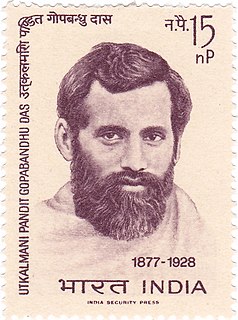 W
WGopabandhu Das (1877–1928), popularly known as Utkalamani, was a social worker, reformer, political activist, journalist, poet and essayist.
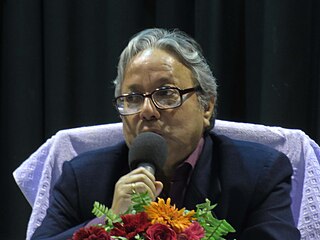 W
WHaraprasad Das, is an Odia language poet, essayist and columnist. Das, has twelve works of poetry, four of prose, three translations and one piece of fiction to his credit.
 W
WBanamali Dasa (1720–1793) is an Indian medieval Odia bhakta-poet from the state of Odisha. "Dinabandhu daitari", "Kede chanda jane lo sahi" and "Manima he etiki maguni mora" are some of his notable writings that are used in Odissi. His songs are popularly sung in festivals, public gatherings and in Odissi dance. Banamali's compositions are set to traditional Odissi ragas and talas & are extremely popular in the Odissi music repertoire. He is considered as the foremost poet of the medieval Odia bhakti-literature Started with writing rustic Erotic Poetry, he later began to compose "bhakti"-poetry which gained larger acceptance and popularity among the other contemporary poets of his time. Typically, his poems are eyewitness accounts, and their simple, fervent language is much appreciated.
 W
WBalarama Dasa was an Odia poet and litterateur. He was one of the 5 great poets in Odia literature, the Panchasakha during the Bhakti age of literature.He was the oldest and is said to be the most talented of the Pancha sakha. He wrote the Odia Ramayana also known as Jagamohana Ramayana.
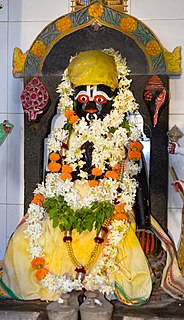 W
WAtibadi Jagannatha Dasa was an Odia poet and litterateur. He was one of the 5 great poets in Odia literature, the Panchasakha. He wrote the Odia Bhagabata.
 W
WSarala Dasa was a 15th-century Poet and scholar of Odia literature. Best known for three Odia books — Mahabharata, Vilanka Ramayana and Chandi Purana — he was the first scholar to write in Odia. As an originator of Odia literature, his work has formed an enduring source of information for succeeding generations.
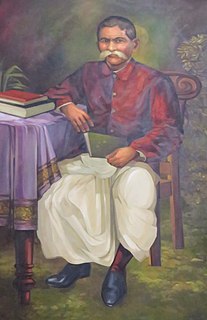 W
WSwabhaba kabi Gangadhara Meher was a renowned Odia poet of the 19th century. Though poor in wealth and education, he remained one of the most prolific and original contributor to Odia literature.
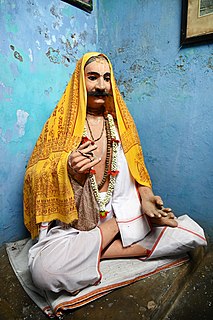 W
WGopalakrusna Pattanayaka (1784-1862) was an Odia poet & composer of Odissi music. His songs, including chaupadis, chautisas, koilis, pois are central to the popular repertoire of Odissi music and are widely sung in Odissi music recitals across the state, as well as other allied traditional artforms of Odisha, such as Pala. The 20th-century Odissi musician, vocalist & binākara Apanna Panigrahi, also from the poet's hometown, was well-known for his renditions of Gopalakrusna's lyrics. Some of the most iconic Odissi songs, such as Syamaku Juhara Tara Premaku Juhara Ma, Jala Ani Jai Kali Kalindasutaku, Sangini Re Rasarangini Re, Kadamba Bane Bansi Bajila Re, Uthilu Ede Begi Kahinkire, Ki Nadare Prana Sangini, Manasija Mana Mohana are creations of Gopalakrusna. Many of his creations are also popular as abhinaya items in Odissi dance.
 W
WJayanta Mahapatra is an Indian English poet. He is the first Indian poet to win a Sahitya Akademi award for English poetry. He is the author of poems such as Indian Summer and Hunger, which are regarded as classics in modern Indian English literature. He was awarded a Padma Shri, the fourth highest civilian honour in India in 2009. He returned the award in 2015 to protest against rising intolerance in India.
 W
WSitakant Mahapatra is an eminent Indian poet and literary critic in Odia as well as English. He was in the Indian Administrative Service (IAS) since 1961 until retiring in 1995, and has held ex officio posts such as the Chairman of National Book Trust, New Delhi since then.
 W
WKavisurya Baladeva Ratha was an Odia poet and litterateur. He wrote in both Sanskrit and Odia. His works are known for devotional quotient. He is the credited founder of the Dhumpa Sangita. Kabisurjya has composed hundreds of songs in the tradition of Odissi music, employing traditional ragas & talas unique to Odissi. His magnum opus Kisorachandrananda Champu is a cornerstone of the Odissi music repertoire & Kabisurjya is widely renowned for his masterful compositions.
 W
WGopal Krishna Rath was an Indian Odia poet. He won Sahitya Akademi award for Odia literature in 2014 for his poetry collection Bipula Diganta.
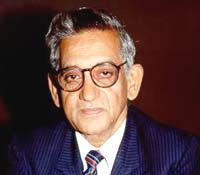 W
WRamakanta Rath is one of the most renowned modernist poets in the Odia literature. Heavily influenced by the poets such as T. S. Eliot and Ezra Pound, Rath experimented greatly with form and style. The quest for the mystical, the riddles of life and death, the inner solitude of individual selves, and subservience to material needs and carnal desires are among this philosopher-poet's favorite themes. His poetry betrays a sense of pessimism along with counter-aesthetics, and he steadfastly refuses to put on the garb of a preacher of goodness and absolute beauty. His poetry is full of melancholy and laments the inevitability of death and the resultant feeling of futility. The poetic expressions found in his creations carry a distinct sign of symbolic annotations to spiritual and metaphysical contents of life. Often transcending beyond ordinary human capabilities, the poet reaches the higher territories of sharp intellectualism. The contents have varied from a modernist interpretation of ancient Sanskrit literature protagonist Radha in the poem "Sri Radha" to the ever-present and enthralling death-consciousness espoused in "Saptama Ritu".
 W
WBrajanath Ratha was an Indian poet who wrote in Odia. Brajanath Ratha is internationally recognised and is the recipient of many prestigious awards like the Odisha Sahitya Academy Award, Vishuba Award, Gokarnika Award, First Shudramuni Sahitya Award and Honoured by South Korea's Ambassador, from Global Cooperation Society International, Seol, Republic of Korea for Contribution in World welfare, Cooperation and Services.
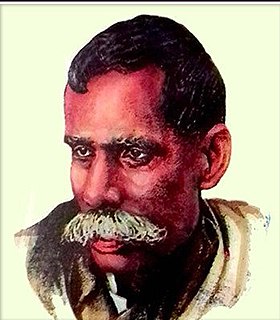 W
WRadhanath Ray was an Odia writer of initial modernity era in Odia poetry during the later part of nineteenth century. He was born in a Zamindar family in Baleshwar, now in Odisha, and is honoured in Odia literature with the title Kabibara. In his early life, he composed in both Odia and Bengali languages, but later he shifted his writings in Odia only. He was born on 28 September 1848, at Kedarpur village in Baleswar district, Odisha. He has contributed verses and poetry for Odia literature in the nineteenth century.
 W
WKuntala Kumari Sabat (1901–1938) was an Odia poet during colonial India. She was one of the women poets who came into prominence from Odisha during India's freedom struggle. She was multifaceted personality. She was a physician, writer, poet, editor, leader of nationalist movement and social worker. She was honored with Utkala Bharati in 1925.